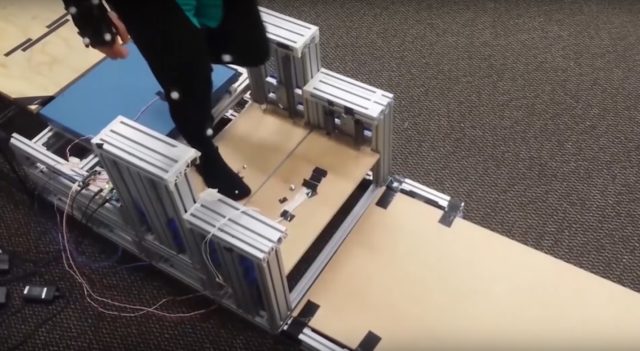
Scientists in the US have created a set of spring-loaded stairs that can help users save energy as they climb and descend them.
A group of mechanical and biomedical engineers, along with computer scientists from Georgia Tech and Emory University, have built what they call “energy-recycling stairs” that compress when someone steps downwards onto them, saving energy by dampening the impact.
This energy is then returned on the way back up as they rise with the user’s foot as they step up. This can boost a person’s step by up to 37%, the research suggests.
They call the system energy-recycling assistive stairs (ERAS).
A video of the stairs in action shows a tester walking up and down a two-stair prototype, the spring-loaded steps lowering as the subject walks down them, then springing back up as they ascend, using the stored energy to provide a boost.
According to the research, which has been published in journal PLOS One, the overall aim of the technology is to aid those with mobility issues without reducing independence.
“Stair negotiation is a demanding task that limits the independence of individuals with mobility impairments such as muscle weakness, joint pain, or reduced sensorimotor control,” he research says.

“Joint movements in the knee are over 3 times greater during stair negotiation compared to level walking during both stair ascent and descent.
“Current solutions providing assistance in stair negotiation are costly, energy-consuming, and do not help to retain the user’s ability to negotiate stairs independently.”
The researchers are now set to carry out further trials of the technology, and hope to create a “more refined mechanical design”.